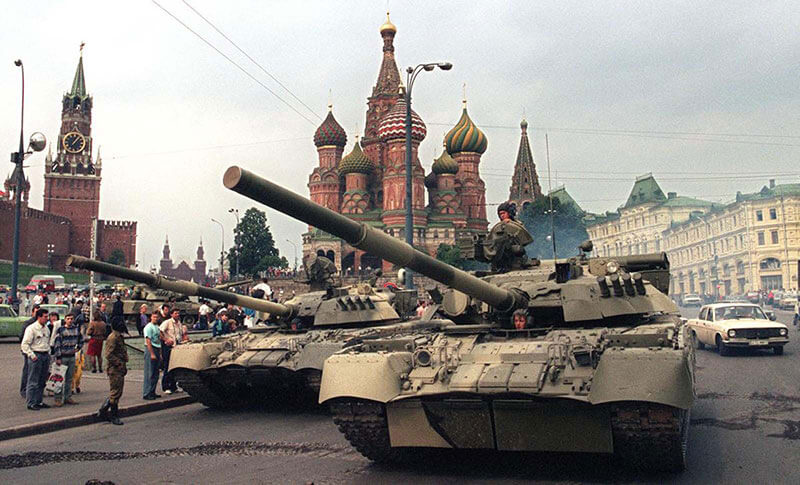Lasting effects of the Soviet-Afghan war
- Guest author
- Mar 15, 2023
- 3 min read
The Soviet-Afghan War, which lasted from 1979 to 1989, had significant and long-lasting effects on both Afghanistan and the Soviet Union. Let's go over some of the lasting effects of the war.
Lasting effects of the Soviet-Afghan war on the region
As a result of the war, Afghanistan had a power vacuum that was eventually filled by the extremist Islamist group known as the Taliban, which went on to dominate the nation from 1996 to 2001. The nation became more unstable as a result of the Taliban's radical policies, which included suppressing women's rights.
Al-Qaeda's formation: Osama bin Laden, a Saudi national, joined the Afghan resistance movement against the Soviet Union throughout the conflict. He established Al-Qaeda following the war, and it went on to become a worldwide terrorist network that carried out the September 11 attacks.
Destabilization of Central Asia: As a result of the war, terrorism and other radical Islamist organizations proliferated throughout the region and other radical Islamist groups emerged.
Soviet Union collapse: The battle significantly strained the Soviet military and economy, which ultimately led to the Soviet Union's collapse in 1991. As a result, new republics were formed, and they quickly rose to prominence in the area.
Humanitarian crisis: Millions of Afghan citizens were displaced as a result of the war, with many of them being forced to escape to nearby nations. Additionally, the conflict seriously damaged Afghanistan's infrastructure and left it in a condition of continuous
conflict and instability.

Lasting effects of the Soviet-Afghan war on the Soviet Union
The Soviet Union was significantly and permanently impacted by the Soviet-Afghan War, both at home and abroad. Here are a few outcomes:
Economic burden: At an estimated $8 billion a year, the conflict had a substantial negative economic impact on the Soviet Union. In addition, the war exacerbated the Soviet Union's already fragile economy and contributed to its eventual downfall.
Depletion of the armed forces: An estimated 15,000 Soviet soldiers were killed and another 45,000 were injured during the conflict. A ten-year weapons race with the United States had already weakened the Soviet force, and this fight added to its depletion.
Domestic upheaval: opposition to the war, which was largely unpopular with the Soviet populace as it progressed, fueled discontent and protest at home. Additionally, the battle damaged the Soviet Union's military and government's credibility.
International condemnation and isolation: As a result of the Soviet Union's involvement in the conflict, the world community isolated it, especially the United States and its allies.
Symbolic defeat: The Soviet Union's soldiers were unable to overcome the Afghan resistance, making the war a military and political disaster for them. Many people viewed the Soviet Union's 1989 exit from Afghanistan as a symbolic setback, which aided in the country's downfall just two years later.

Lasting effects of the Soviet-Afghan war on Afghanistan
Afghanistan suffered greatly during the Soviet-Afghan War, and the consequences are still being felt today. The following are a few long-term consequences of the conflict in Afghanistan:
Infrastructure destruction: A large portion of Afghanistan's infrastructure was destroyed as a consequence of the war. The nation's economy, which was precarious to begin with, was completely destroyed.
Millions of Afghan citizens were displaced as a result of the war, and many of them took asylum in neighboring countries. Atrocities against people and extensive violations of human rights were also brought on by the fighting.
Civil war: Despite paradoxically outlasting Soviet rule, the communist regime that the Soviet Union had left behind was unable to last long. This led to a power vacuum that ultimately resulted in a full-scale civil war.
Warlords: The conflict also sparked the rise of these individuals, who battled for dominance over various areas of the nation. As a result, there has been continuous fighting and instability, making it difficult for the central authority to keep control.
Poverty and lack of development: Afghanistan's pervasive poverty and lack of development are products of the conflict and its aftermath. The nation is still among the poorest in the world, with little access to essential services like healthcare, education, and other necessities.

Summary
The war between the Soviet Union and Afghanistan, which raged from 1979 to 1989, had profound effects on both countries. Millions of Afghan citizens were forced to flee their homes as a result of the war, which also destroyed infrastructure and gave rise to warlords, adding to the nation's enduring instability and violence. Al-Qaeda's and the Taliban's ascent were further effects of the conflict. The war was a financial and military drain for the Soviet Union, which led to internal discontent and isolation on the world stage as well as the country's final demise. All things considered, the war had terrible consequences on both nations, ones that are still influencing their destinies.
Comments